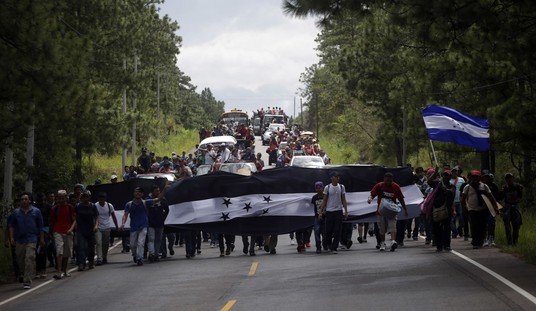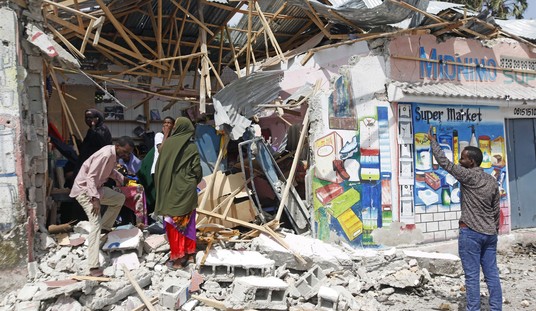I took serious issue with Howard Dean’s stance on the Iraq war, as anyone who has read this blog knows. Nevertheless, I have a lot more respect for him than I have for John Kerry. The man is not, as the JibJab cartoon says about Kerry, a “liberal weiner.” He just thought the Iraq war was dumb. And he said a lot of dumb things about it.
He never did strike me as the kind of guy to back down from a fight. He can be both scrappy and ruthless, necessary traits in the confrontation with Islamofascism.
Did you know he is a columnist at Cagle Cartoons? Yes, he really is. (Hat tip: Armed Liberal.)
In his latest piece he pours a bit of ice-cold realism on the idea that John Kerry (or anyone else) will have an easy time knitting the trans-Atlantic alliance back together again.
Europeans cannot criticize the United States for waging war in Iraq if they are unwilling to exhibit the moral fiber to stop genocide by acting collectively and with decisiveness. President Bush was wrong to go into Iraq unilaterally when Iraq posed no danger to the United States, but we were right to demand accountability from Saddam. We are also right to demand accountability in Sudan. Every day that goes by without meaningful sanctions and even military intervention in Sudan by African, European and if necessary U.N. forces is a day where hundreds of innocent civilians die and thousands are displaced from their land. Every day that goes by without action to stop the Sudan genocide is a day that the anti-Iraq war position so widely held in the rest of the world appears to be based less on principle and more on politics. And every day that goes by is a day in which George Bush’s contempt for the international community, which I have denounced every day for two years, becomes more difficult to criticize.
Bush can still be criticized, of course. But that criticism is meaningless if the behavior of European leaders isn’t taken into account. The trans-Atlantic alliance is cracking up. Some of it is Bush’s fault, some of it is the fault of European leaders, and some of it isn’t anybody’s fault.
Before the onset of the Cold War there was no such thing as any trans-Atlantic alliance. Western Europeans allied themselves with the U.S. through NATO specifically to counter the threat from the post-war Soviet Union. The NATO slogan at the time was “America in, Russia out, and Germany down.” When West Germany mellowed out and the Soviet threat evaporated, the raison d’etre of the alliance no longer existed.
Europeans today tend to feel less threatened than they have in a very long time. That’s because they are less threatened. There is no totalitarian army interested in, let alone capable of, launching a ground invasion.
We Americans, on the other hand, tend to feel more threatened than we have in a very long time. The oceans did not protect us from Al Qaeda as they once protected us from Hitler and Soviet ground forces.
So the fact that today Americans and Europeans tend to have different ideas about the use of military force isn’t surprising or anyone’s fault. It is a natural shift based on changed historical circumstances.
It’s nice to see that Howard Dean, for one, is aware that something bigger is going on here than merely George Bush’s arrogant cowboy style. John Kerry, or whoever else replaces the current president, will have to deal with it. I wouldn’t expect an end to American “unilateralism” just because Bush goes back to Crawford. It started, after all, when Bill Clinton stomped Slobo in Belgrade without consulting the UN at all.









Join the conversation as a VIP Member